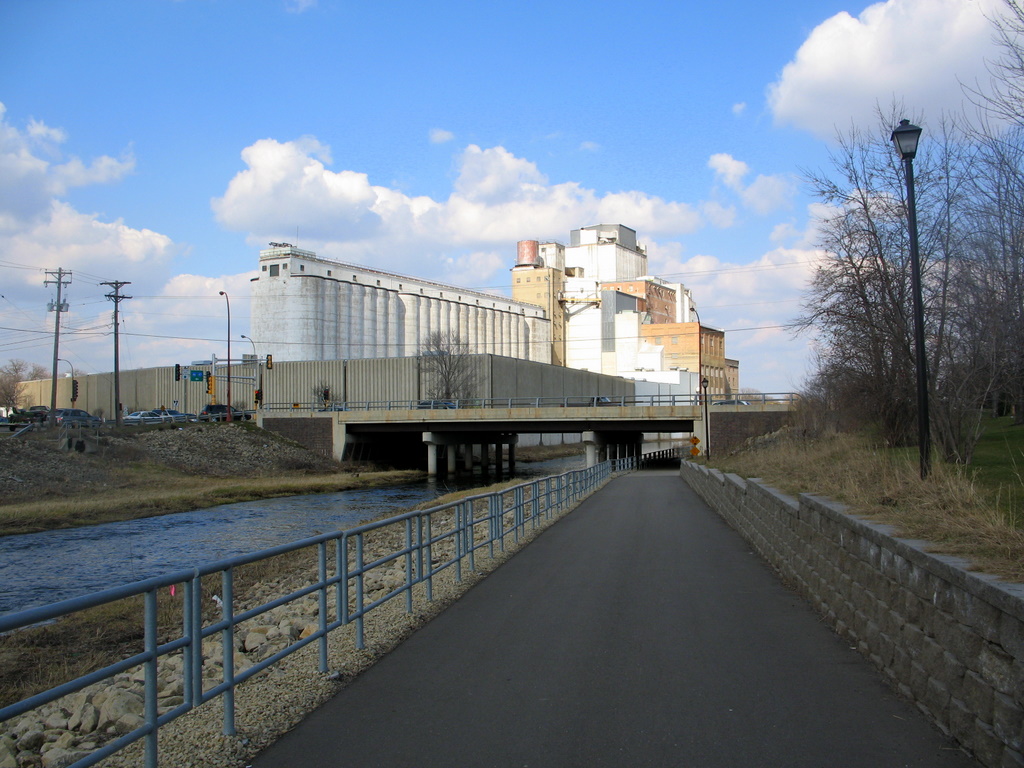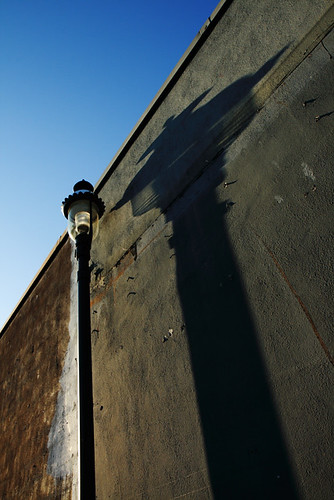 In a very exciting move, I'm changing the title of the "news flash" to the"Friday Friday", mostly because I've become involved with a new project in the Twin Cities Sidewalk world. (Do you have a better name idea?)
In a very exciting move, I'm changing the title of the "news flash" to the"Friday Friday", mostly because I've become involved with a new project in the Twin Cities Sidewalk world. (Do you have a better name idea?)I'm going to start blogging regularly over at a new website, Twin Cities Streets for People, where a team of Minnesota urbanists are going to try to keep tabs on what's going on in the local urbanism scene.
The site is meant to be a community clearinghouse for news and information about street-friendly activities and activism throughout the metro area. We're hoping to cover not just stories that his the press, but events and politics at the ground level. Some ideas I have for the site include:
- Having people take photos of street festivals, street problems, or noteworthy initiatives happening around town and post them online.
- Keeping tabs on key votes or planning decisions in the city and regional governments
- Linking the local street movement to broader efforts throughout the country
Let me know if you want to help out with the TC Streets for People effort. It's a tall order, and we could use all the help we can get! Drop me an email if you're interested in contributing.
<<<>>>
This clip of an "urban terrorist" TV show freaked me out when I saw it a few years ago...
... it really connects the dots between big cities and terrorism. The only solution? A backyard bunker!
<<<>>>
I don't know why, but I've been paying a lot of attention lately to the Peak Oil crowd. I think it's because of the high prices for energy these days, and all of the intense discussions about the economic unrest that this pressure has generated with my friends across the country during my recent train trip.
Everywhere you turn, people are really squirming about how the oil price has kept going up. And if you listen to any of the pretty convincing analysis from the peak oil community, the last few years is just the tip of the iceberg.
Then I started reading James Howard Kunster's really pessimistic book, The Long Emergency, and now I can hardly stand driving a car.
The thing that Kunstler does nicely is to connect the dots between energy use and the U.S. economy... According to his book, only one third of the incredibly high US energy usage (25% of the world's oil) comes from electricity. The rest flows from hydrocarbons -- oil and natural gas. Almost all of our transportation, construction, and home heating is powered by oil, and that amounts to a huge percentage of our economic activity. The housing or argricultural industries, for example, are extremely oil dependent. He argues that replacing that amount of oil will be very, very difficult even with the best of alternative energies.
But that said, I've long been aware that the peak oil idea had a kind of cult following. I think in some ways, it has become something of an 'end times' religion for hippies, akin to the most evangelical of Christianities. And for that reason as much as the fact that it's hard to envision technological meltdown, it's been very hard to buy wholesale into the idea that the global economy is going to hell in a handbasket. (Even if it is.)
<<<>>>
So, I was willing to dismiss some of the hyperbole... but then I watched Al Gore's great speech today, and it seems that he agrees with me.
My favorite bit from the talk is (about 6:45 seconds in) when he says that "our dangerous reliance on carbon based fuels lies at the core of all three of our nation's challenges... the economic, environmental, and national security crises".
He then does this little "pulling on a string" hand gesture where he says that if we pull on that "oil dependence" thread, all of our interlinked problems will start to unravel.
[Tug... tug at my heartstrings, Al Gore!]
Gore really shied away from discussing the real meat of the matter, though. In order to make our nation work on electricity, conservation has to be a big part of the equation. We need to dramatically cut the amount of energy we use in our daily lives, particularly in transportation sector which (I have heard) accounts for almost 70% of our oil use.
And that's going to mean a lot more walking on sidewalks.
<<<>>>
Some national headlines:
- Back on track: a rail renaissance connects trains to natural destinations
- A dramatic reshaping on Broadway in Manhattan
- Oil isn't going anywhere (gore be damned)
- Permeable alleys in Chicago help groundwater and watersheds
- A rather old-school, ridiculous look at "the future" of cities (courtesy of Popular Science)
<<<>>>
This is a terrific local blog that really makes it clear how difficult it can be to get by without a car in the Twin Cities: Car Free Family Minneapolis
Here's a good snippet:
Head Cold. Rushing on the bus to get the Big One to an audition. He didn’t get the job. He is a talented actor, yet he has no skills in auditioning. But still, I picked my snot-filled head off the pillow, got dressed and hopped the #4 to downtown. As I’m getting off the bus I see the face of Denny Hecker, greasy car-salesman extraordinaire. The bus sign actually said, “Nobody Walks.” Where the heck does he live? What planet?
<<<>>>
A nice correction to some of the misinformation about urban densities in the US.
You often find people saying that cities like L.A. are just as dense as cities like New York (paging Bob Brueggmann). This guy offers one alternative methodology that gives the common sense answer.
It always amazes me how far statistics can be bent...
<<<>>>
Three photos for you...

[An amazing freeway photo -- fm. Fffound]

[A walking path in Hastings -- fm. TC Daily Photo]

[An awesome lamppost photo -- fm. Uptown Mpls Blog]
Hey thanks for mentioning our car-free family on your blog. We would love to help in this adventure!
ReplyDeleteJeanne, Robert, Aidan and Finneas!
i'm glad you put the al gore speech up. i haven't watched it yet, but my boyfriend was griping earlier about how no one seems to be picking the story (besides katie couric who apparently gave the worst interview in history). go news!
ReplyDelete